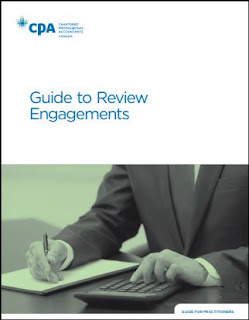In 2016, the Chartered Professional Accountants of Canada (CPA Canada) published the Guide to Review Engagements as non-authoritative guidance. Chapter 3 of the Guide (page 26) notes that “Professional judgment involves the application of relevant training, knowledge, and experience (within the context provided by the assurance, accounting, and ethical standards) in making informed decisions about the courses of action that are appropriate in the circumstances.”
Professional judgment requires practitioners to apply their training, knowledge, experience and professional skepticism to the known facts and circumstances of the particular engagement. Where necessary, the appropriate consultation with others will help to make sure that reasonable judgments are made. In Chapter 3 of the Guide, Exhibit 3.1-4a (pages 27-28) provides some examples of the use of professional judgment in a review engagement and some points to consider in the documentation of such judgments.
Chapter 3 of the Guide (page 22) notes that “Professional skepticism is an attitude that includes a questioning mind, being alert to conditions which may indicate possible misstatement due to error or fraud, and being capable of critically assessing evidence. Professional skepticism enhances a practitioner’s ability to identify and respond to conditions that may indicate possible misstatement.” The main elements of professional skepticism are summarized in the following exhibit.
For additional insight, refer to the article published by
CPA Ontario on The
Importance of Professional Judgment and Professional Skepticism in Conducting a
Review Engagement.

